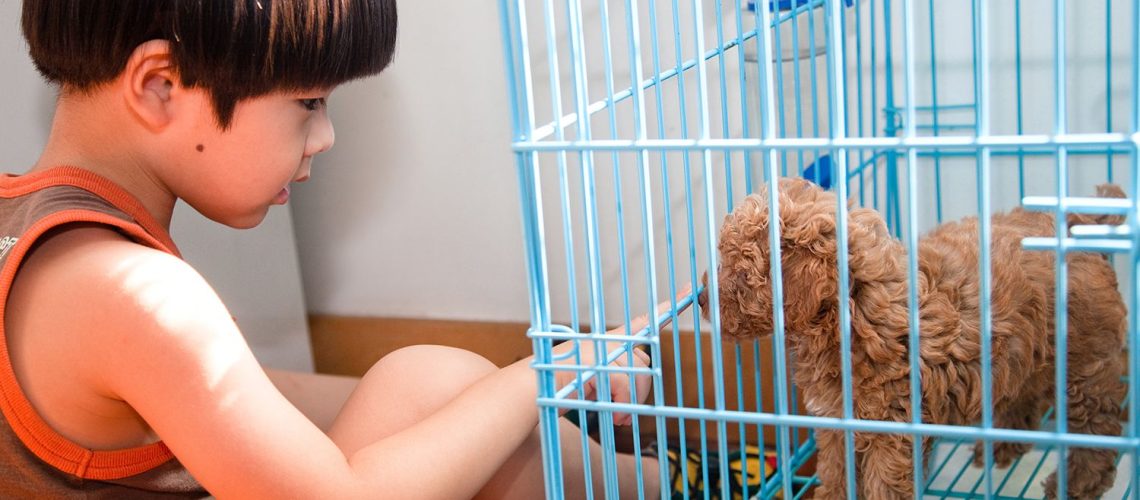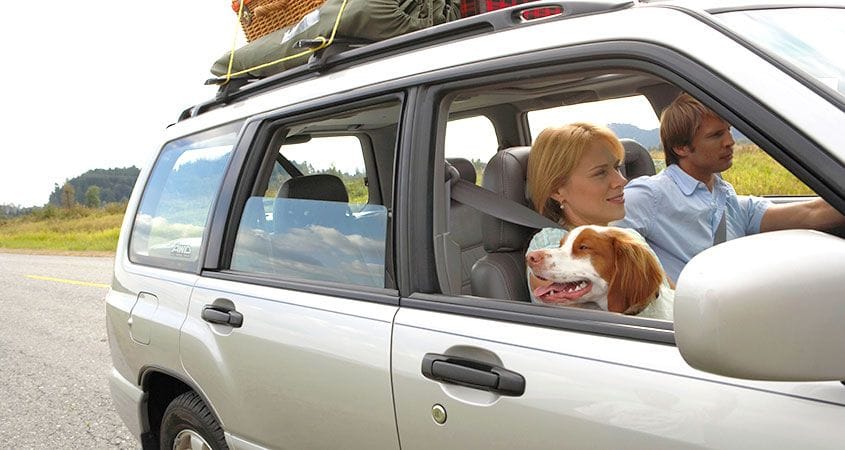If you're wondering how to kennel board your dog, look no further! In this guide, we'll provide you with all the essential information and tips to ensure a smooth and comfortable experience for your furry friend while you're away.
Key Takeaways:
- Research and choose a reputable kennel facility that meets your dog's specific needs and requirements.
- Prepare your dog for their stay by ensuring they are up to date on vaccinations, have proper identification, and are familiar with basic commands.
- Pack essential items such as food, medication, bedding, and toys to provide comfort and familiarity during your dog's stay.
- Communicate any special instructions or requirements to the kennel staff, including dietary restrictions, medical conditions, or behavioral issues.
- Maintain regular communication with the kennel staff during your dog's stay to stay updated on their well-being and address any concerns promptly.
What is kennel boarding for dogs?
Kennel boarding for dogs refers to a service where dogs are temporarily housed and cared for in a facility specifically designed for their needs. These facilities, known as kennels, provide a safe and comfortable environment for dogs while their owners are away. Kennels typically have individual enclosures or runs where each dog can stay, along with communal areas for exercise and socialization.
When you choose kennel boarding for your dog, you can have peace of mind knowing that trained professionals will be taking care of your furry friend. They will provide food, water, exercise, and any necessary medication. Kennels also ensure that the dogs are kept clean and comfortable throughout their stay.
Reasons to choose kennel boarding for your dog
There are several reasons why people opt for kennel boarding services for their dogs:
- Security: Kennels provide a secure environment where your dog is less likely to escape or get lost compared to leaving them at home or with a pet sitter.
- Socialization: Dogs staying at kennels have the opportunity to interact with other dogs, which can improve their social skills and overall well-being.
- Professional care: Kennels employ trained staff who know how to handle different breeds and can provide proper care and attention to your dog's specific needs.
- Routine maintenance: Kennels have established routines for feeding, exercise, and hygiene, ensuring that your dog's daily needs are met consistently.
- Pet owner's convenience: Boarding your dog in a kennel eliminates the need to rely on friends or family members to take care of them while you're away.
Kennel boarding offers many benefits both for your dog and for your peace of mind, making it a popular choice among pet owners.
Finding a suitable kennel for your dog
When searching for a suitable kennel facility for your dog, consider the following factors:
- Reputation: Look for kennels with positive reviews and recommendations from other dog owners. A good reputation is an indication of quality care.
- Cleanliness: Visit the kennel in person to assess its cleanliness. A clean environment is essential to prevent the spread of diseases and parasites.
- Facilities: Check if the kennel has proper enclosures or runs for each dog, as well as secure fencing and adequate ventilation.
- Staff qualifications: Inquire about the training and experience of the staff members who will be taking care of your dog. Ensure they have knowledge of canine behavior and first aid.
- Add-on services: Some kennels offer additional services such as grooming or training. Consider whether these extras are important to you.
- Cost: Compare prices among different kennels, but remember that quality care may come at a higher price. Make sure you understand what is included in the cost.
Taking the time to research and visit potential kennels will help you find one that meets both your needs and those of your furry friend.
Preparations before taking your dog to a kennel
To ensure a smooth transition when taking your dog to a kennel, it's important to make some preparations beforehand:
- Vaccinations: Ensure that your dog's vaccinations are up to date. Kennels often require proof of vaccination to protect all dogs staying there from contagious diseases.
- Medications: If your dog requires any medications, provide clear instructions to the kennel staff and pack an adequate supply of medication for the duration of their stay.
- Comfort items: Pack familiar items such as your dog's bed, toys, or blankets. These can help them feel more secure and at ease in the new environment.
- Dietary needs: Provide detailed information about your dog's dietary requirements and any food allergies or sensitivities they may have. It's best to bring their regular food to avoid digestive issues.
- Emergency contacts: Leave the contact information of a trusted person who can make decisions on your behalf in case of an emergency when you're unavailable.
- Transition visits: If possible, take your dog for a few short visits to the kennel before their actual stay. This will help them become familiar with the surroundings and reduce anxiety.
By making these preparations, you can ensure that your dog has a comfortable and stress-free experience during their time at the kennel.
Making your dog feel comfortable in a kennel environment
Helping your dog adjust and feel at ease in a kennel setting is essential for their well-being:
- Familiar scents: Bring along an item with your scent on it, such as a worn t-shirt or pillowcase. The familiar smell will provide comfort to your dog in the new environment.
- Routine maintenance: Inform the kennel staff about your dog's usual routine for feeding, exercise, and bathroom breaks. Maintaining consistency will help them feel more secure.
- Positive association: When dropping off your dog at the kennel, remain calm and upbeat. Dogs are sensitive to their owner's emotions, so a positive attitude will help them feel more relaxed.
- Transition objects: Provide your dog with a favorite toy or blanket that they associate with comfort and security. Having familiar items nearby can alleviate anxiety.
- Regular exercise: Ensure that your dog receives regular exercise before their stay at the kennel. A tired dog is more likely to relax and adapt to the new surroundings.
By implementing these strategies, you can help your dog settle into the kennel environment and minimize any stress or discomfort they may experience.
Providing information about your dog's needs and routines to the kennel staff
Sharing essential details about your dog's requirements and daily routine with the kennel staff is crucial for their well-being:
- Dietary needs: Inform the staff about your dog's specific dietary requirements, including portion sizes, feeding times, and any food allergies or sensitivities they have.
- Medications: Clearly communicate any medications your dog requires, along with dosage instructions. Provide the staff with written directions to ensure accurate administration.
- Exercise routine: Explain your dog's typical exercise routine, including the frequency and duration of walks or playtime. This will help the staff maintain consistency during their stay.
- Bathroom habits: Describe your dog's usual bathroom habits so that the staff can anticipate when they need to be taken outside for potty breaks.
- Socialization preferences: If your dog has specific preferences or sensitivities when it comes to interacting with other dogs, make sure to inform the staff. They can then tailor socialization opportunities accordingly.
The more information you provide about your dog's needs and routines, the better equipped the kennel staff will be to provide personalized care and ensure your dog's comfort.
How often to visit or contact the kennel while your dog is boarded there?
Staying connected with your pet during their time at the kennel is important, but it's also essential to strike a balance:
- Visits: While occasional visits can help reassure both you and your dog, frequent visits may disrupt their routine and cause anxiety. Aim for one or two visits during their stay, if possible.
- Phone calls: Inquire with the kennel about their policy on phone calls. Some kennels may offer updates on your dog's well-being upon request, while others prefer to limit phone calls to minimize disruption.
- Trust the professionals: Remember that you have chosen a reputable kennel with trained staff who are experienced in caring for dogs. Trusting their expertise will allow them to provide the best possible care for your furry friend.
It's natural to miss your dog when they are away, but giving them space and allowing them to settle into the routine of the kennel will ultimately benefit their overall experience.
Safety precautions when picking up your dog from the kennel
When collecting your beloved pet from the kennel facility, it's important to take some safety measures:
- Secure transportation: Ensure that you have a secure carrier or leash for your dog when transporting them back home. This prevents any accidental escapes or injuries during transit.
- Paperwork review: Take a moment to go through any paperwork provided by the kennel staff. Check for any instructions or recommendations regarding post-kennel care.
- Calm reunion: Dogs may be excited or anxious when reuniting with their owners after a period of separation. Approach your dog calmly and allow them to approach you at their own pace.
By following these safety precautions, you can ensure a smooth and stress-free transition for both you and your dog when leaving the kennel facility.
Signs of proper care during your dog's stay at a kennel
During your dog's stay at a kennel, there are several indicators that can assure you they received appropriate care and attention:
- Cleanliness: Your dog should appear clean and well-groomed when you pick them up from the kennel. This indicates that the staff maintained good hygiene practices.
- Healthy appearance: Look for signs of a healthy dog, such as bright eyes, a shiny coat, and good energy levels. These indicate that your dog received proper nutrition and exercise.
- Positive behavior: If your dog seems happy and relaxed when leaving the kennel, it suggests they were in a comfortable environment where their needs were met.
- Staff communication: If the kennel staff proactively provided updates on your dog's well-being or addressed any concerns promptly, it shows their commitment to quality care.
If you observe these signs, it's likely that your furry friend was well taken care of throughout their stay at the kennel.
| Conclusion | |

|
When it comes to kennel boarding your dog, remember that their comfort and safety should be your top priority. By following the steps mentioned in this guide, you can ensure a positive experience for both you and your furry friend. Remember to choose a reputable kennel facility, prepare your dog adequately, and provide all necessary information to the staff. Regular visits and clear communication will also help ease any anxiety or concerns you may have. With proper planning and care, kennel boarding can be a More Reads
Dr. Clara Bennett
Hello, fellow pet enthusiasts! I'm Dr. Clara Bennett, your go-to expert on all things pets. With a background in veterinary medicine and a passion for nutrition, I've spent years diving deep into the world of cats, dogs, birds, horses, and the products that keep them thriving. From the English countryside, I've witnessed the magic of animals and am here to share my knowledge, ensuring your pets receive the best care. Together, let's master the art of pet care!
All Posts »
Next Steps In Mastering Cat CareNext Steps In Mastering Dog CareJoin Our NewsletterSubscribe to receive our latest updates in your inbox! |
















